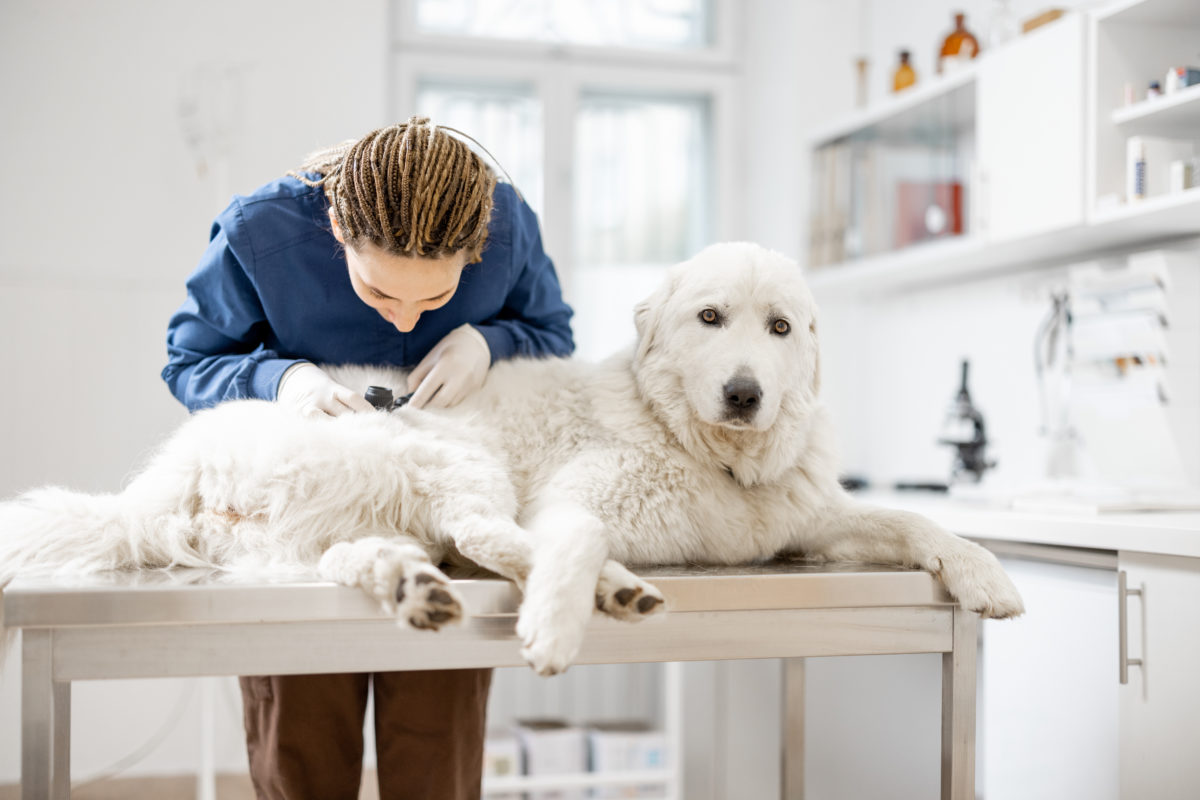Responsible pet owners want the best for their beloved cat or dog, including their skin care. When you notice excessive itching, scratching or discomfort from your pet, it’s time to take action. If a pet looks like they have skin irritation, it could be a sign that something is wrong and shouldn’t be ignored. These behaviours can be a response to a variety of things such as pet allergies, parasitic infestation, a bacterial or fungal infection, dry skin, or boredom.
When a pet is constantly scratching or chewing at their skin, they run the risk of prolonging and worsening any potential skin problems. Knowing the telltale signs of various pet skin conditions will help you find appropriate treatment sooner so you can put an end to your pet’s skin irritation and keep any issues at bay.
Signs of skin irritation in pets
If your pet has skin irritation, you may notice a red wet patch on their skin or coat, or you will catch them in the act of licking, scratching or chewing that area of their skin. You will also notice a few changes to their coat that will signify something is wrong
Some of the more common signs to look out for are:
- Chewing, licking, biting or scratch their own skin
- Hair loss or bald patches
- Rashes
- Dry flaky skin
- A dull coat
- A distinct smell/odour that resembles wet socks
Cause of pet skin conditions
Helping your pet’s skin conditions can feel like a never ending battle. The rash on your pet’s skin could have been caused by them incessantly scratching and tampering with their skin, but there’s most likely an underlying cause to explain why your pet is feeling this level of discomfort.
Pet allergies
Noticing sudden strange patches on your pet’s skin can often raise a few questions such as ‘is my dog injured?’, ‘does my dog have allergies?’, ‘has my cat been attacked?’. The truth is, your furry friend can be susceptible to pet allergies regardless of their breed or age. Allergies can often be triggered by food or environmental triggers such as pollen, dust, grass, mould and other allergens. Testing can be done to determine the trigger so you can try to minimise your pet’s exposure to some of these allergens.
Skin allergies and dermatitis
Dermatitis is the name used to describe skin allergies. Unfortunately, skin allergies are often a long term, chronic condition that will require ongoing treatment for your cat or dog.
Other skin allergies can be caused by contact dermatitis which is often the result of your pet coming into contact with chemicals or plants that cause a reaction.
Parasites
Parasites that commonly affect pets include ticks, fleas, fungal infection, mange, lice, and ear mites. Some parasites cannot be seen by the naked eye until there is a large infestation. It is important you monitor any changes in your pet’s behaviour, and get them tested and treated for parasites if you notice any signs. Leaving parasites untreated can result in further discomfort, skin irritation, and more serious health issues.
Boredom and anxiety
Excessive chewing, scratching or licking isn’t always the result of a physical reaction. Sometimes it can be a sign that your pet is experiencing psychological discomfort and is trying to self-soothe. Identifying what is causing your pet distress, along with finding a way to keep your pet calm, will help to prevent these compulsions.
Pet skin care tips
Whether you’re trying to better manage cat allergies, dry skin, parasites, anxious pets, dog allergies, or recurring skin conditions for your pet, there are a few things you can do to help ensure your pet’s skin stays healthy.
Diet
A proper diet is absolutely essential for your pet to live a happy and healthy life. We’ve already established that skin concerns can be attributed to food allergies, but they can also be the result of an improper diet. Feeding your dog or cat food that is poor quality or lacking in certain nutrients can affect the condition of their coat and underlying skin.
Medicated shampoo
Unlike regular shampoo, medicated shampoo can help provide relief quickly and effectively for pets with skin conditions. Medicated shampoos are specially formulated with active ingredients such as antibacterial agents to treat common pet skin conditions.
Monitor faeces
Faecal testing is the best way for your vet to check your pet for intestinal parasites.
Testing your pet’s faeces every six months can ensure that your pet isn’t suffering from worms. Regular testing can help catch parasites early, making them easier to treat.
Keep a diary
Keeping a record of your pet’s symptoms, behaviour, medicine, and meals will help you and your vet to gain a better understanding of your pet’s health.
Diagnosis
As soon as you notice any signs of skin discomfort in your cat or dog, take them to the vet for a check up. Getting your pet checked for any allergies or parasites can help prevent symptoms from spreading, and allow for faster treatment.
Prior to trying any medicated creams, or if you are unsure what treatment is best for your pet, the friendly team at Clyde Veterinary Hospital can offer the best advice during a consultation. If you have noticed any changes in your pet’s behaviour, or think your pet might be suffering from parasites or an allergic reaction, please contact us on (03) 9052 3200 or make a booking online today.



